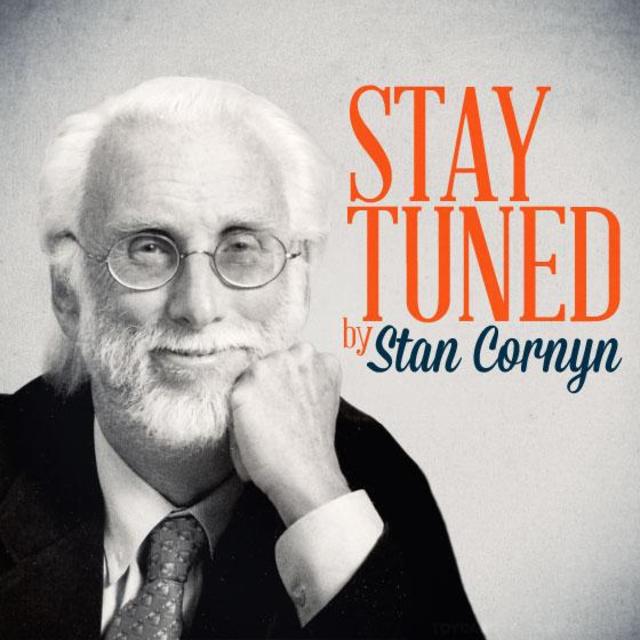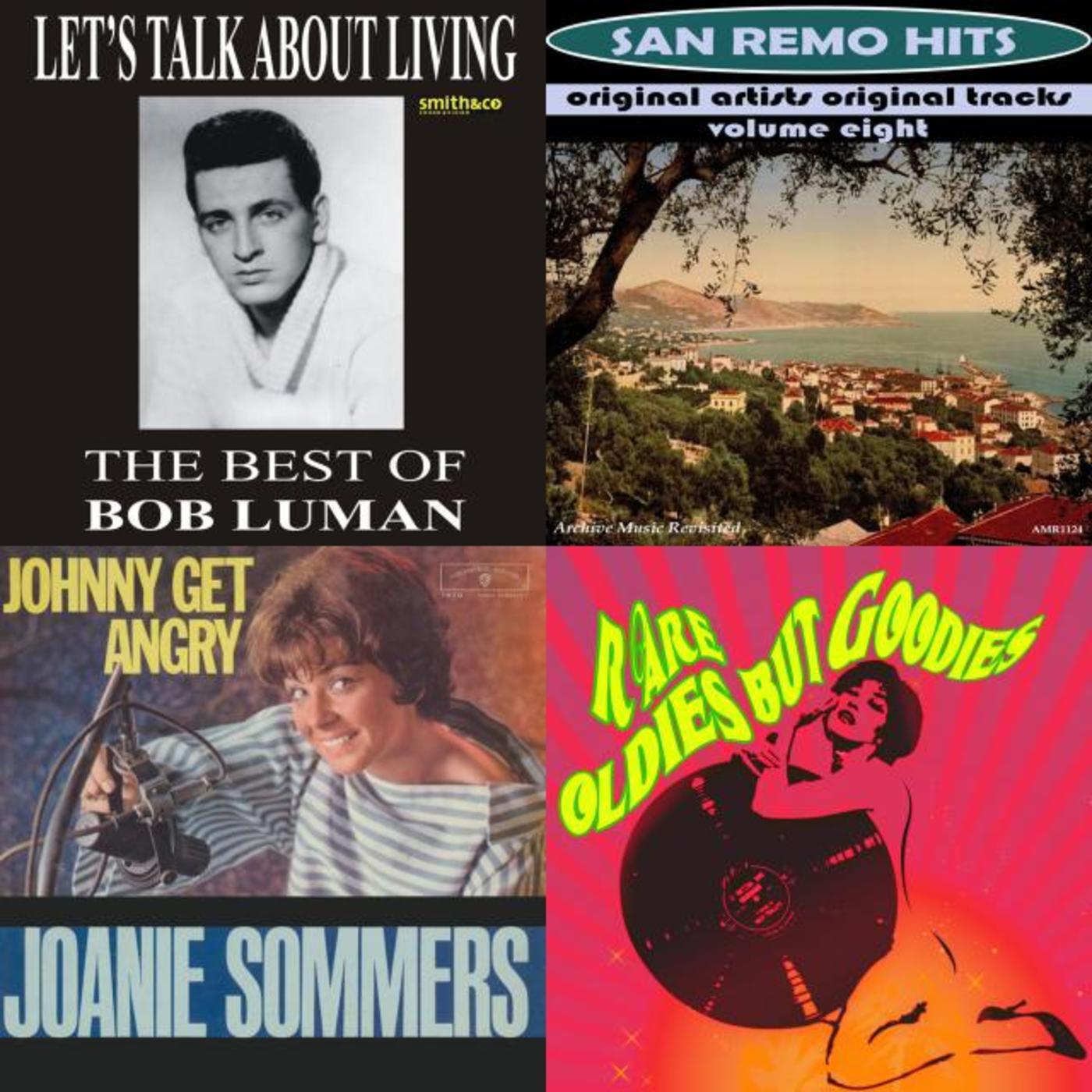Stay Tuned By Stan Cornyn: Quickies

Every Tuesday and Thursday, former Warner Bros. Records executive and industry insider Stan Cornyn ruminates on the past, present, and future of the music business.
Plus: Where Are They Now!
In covering the BIG hits in their hottest years, We too often skip over those quick-before-it’s-over! Hits and their artists. Even though the items below were best sellers, They get trapped by their short-lived fame at WB/R. What a shame.
Here are some early hits worth some remembering:
Edd Byrnes: “Kookie, Kookie, Lend Me Your Comb” in 1959. He wasn’t much of a singer, but this teen-appealing actor on 77 Sunset Strip made one mass-market single, with Connie Stevens handling much of the music (#27 on Billboard). Byrnes is now 80 years old, living in New York.
Bob Luman: “Let’s Think About Livin’” in 1960. He sang rockabilly, for a range of labels (Capitol wanted to change his name, so he left them and moved to WBR). Shortly thereafter, in 1960 Luman got drafted into the Army. WBR had unreleased sides and put out “Let’s Think About Livin’,” which went to #7 on Billboard’s Hot 100 chart. Two years in the Army, and WBR had moved on. Luman moved to Nashville, where he died of pneumonia in 1978 at age 41. He became a member of the Rockabilly Hall of Fame.
Bill Haley: “Let the Good Times Roll” and many others, starting in 1960. (Back in 1950, Haley had recorded a cover version of Ruth Brown’s “Teardrops from My Eyes” when Atlantic was issuing both black and white versions of its singles.) Haley had moved on to other labels and had major singles in a new pop medium he and Elvis develped: “rock ‘n’ roll.” Haley’s hits included “Shake, Rattle and Roll” and “Rock Around the Clock.” Decca Records had Bill Haley at his peak. Later: Haley came to Burbank hoping for a second major career (post-Decca). But time had passed, and young WBR signed this now somewhat passé artist in 1960. He lived until 1981.
Connie Stevens: “Sixteen Reasons” in 1960 reached #3 on the Billboard Hot 100. Connie recorded frequently for her studio’s label, WBR, but was more valued as a television actress on “Hawaiian Eye.” She could sing, however, which added her to the studio’s Edd Byrnes’ “Kookie, Kookie, Lend Me Your Comb” off-shoot of the TV series, 77 Sunset Strip. On her own, she recorded albums (Concetta [her birth name] in 1958.) She remained cute, married twice (the second time to Eddie Fisher), and has stars with her name on them in two sidewalks, Hollywood and Palm Springs, where she has two of her three homes. Now retired, wealthy, and Republican.
Emilio Pericoli: “Al Di La” in 1961. Warner Bros. Records (via its first International exec, Bobby Weiss) picked up this single by Pericoli from his Italian label, Ricordi Records. This “in English” version got to #6 on the Billboard charts, and was then featured in the film Rome Adventure. Pericoli had no further hits.
Joanie Sommers: “Johnny Get Angry” in 1962. She had a few singles on WBR in the early 1960s, and became even more famous for voicing the Pepsi commercial, “For Those Who Think Young.” Other singles (“One Boy”) followed, and she became a studio starlet working along with 77 Sunset Strip’s Edd Byrnes. She then retired into marriage and motherhood. Lives in L.A. She’s still singing, too.
Saverio Saridis: “Love Is the Sweetest Thing” in 1962. “The Singing Cop,” as this New York policeman became known, became a major hit in San Francisco, as local promo man Don Graham turned the town around for this one side. A major reception at the Fairmont, with a non-stop invoice. Even Jack Warner called up to Joe Smith, having heard the buzz, and wanted to put “that cop who sings” in a movie. The single, however, sold only 27,000 copies, nationwide. And that was the end of the singing cop’s career.
Jimmy Durante: “September Song” in 1963. The early, hilarious songs of Durante (like “Inka-Dinka-Doo”) had been born for earlier generations. In the early 1960s, WBR’s Joe Smith lured Durante back to record albums of sentimental oldies, which Durante’s voice and attitude now sounded perfect for. Major recording sessions took place, and Durante stunned at them all. Born in 1893, Durante (“the Schnozzola”) was 70 years old when he recorded for Warner, albums called September Song, One of Those Songs, and Songs for Sunday, recorded with rich backings by arrangers like Gordon Jenkins. Durante died in Santa Monica in 1980, age 87.
The Marketts: “Out of Limits” in 1963; “Batman Theme” in 1966. A quintet of instrumentalists put together by Michael Gordon in Hollywood. They started out as a “surf rock” group, but were adept at handling any instrumentals-labels-wanted. Gordon later formed a second group, The Routers, and both produced for Warners.
The Routers: “Let’s Go (Pony)” in 1962. The second instrumental group run (simultaneously with The Marketts) by Michael Gordon at WBR fifty years ago. Studio-recorded, with first-rate musicians Hal Blaine (drums) and Leon Russell (piano). “Let’s Go” became a cheerleaders’ favorite: “clap clap clap-clap-clap clap-clap-clap-clap Let's Go!". Fifty years later, Gordon is still active in the Hollywood film industry.
Jack Nitzsche: “The Lonely Surfer” in 1963. This was early in Jack’s career, when he mostly created arrangements for others’ recordings, a list that reached from Phil Spector to the Stones. Jack was not even-tempered, but he got the sound he wanted. (Depression and substance abuse followed, and in the mid-1970s he was dropped from the Reprise roster after recording a bitchy song about Mo Ostin. He also got arrested for rape-assault-with-a-gun-barrel on his girlfriend, Carrie Snodgress in 1979. But we amble.) Nitzsche was one of the 1960s-70s hit-makers, but worked mainly as an arranger, not “the star.” He died, exhausted, in 2000.
Caesar and Cleo: “Love Is Strange” in 1964. Sonny Bono and his wife Cher scrambled for attention in the early 1960s, he showing up from office to office, hawking their early “singles.” He showed up with dubs at Mo Ostin’s office, offering duets with their “stage name,” Caesar and Cleo. Mo bought a couple of sides, and out came “Love Is Strange.” In New York, Sonny vended sides to ATCO using their other name: Sonny and Cher. Then, when Mo soon after heard “new” sides by Sonny and Cher, he bought those two, thereby having two contracts with the same act.
Freddie “Boom Boom” Cannon: “Abigail Beecher” in 1964. Cannon had recorded for producer Frank Slay’s Swan label since 1959, with hits like “Palisades Park.” After Slay sold his Swan label to Warners in 1969, and Cannon’s first release, “Abigail,” took off. Cannon was totally a rocker, used gigantic drum beats that made dancers shake their everythings, anyplace they could dance. Cannon continued with WBR through 1968, then divorced. He lives now in Tarzana, CA., and has full control of all his master records.
Dick and DeeDee: “Thou Shalt Not Steal” in 1965. Using made-up names, this professional-songwriting due were signed to Warners to make singles hits, and they did. Straight-forward pop vocals, with a doo-wop feel. Full names: Dick St. John and DeeDee Sperling, with their biggest hit, “Thou Shalt Not Steal,” coming at the end of their recording career. After 1965, they faded away.
Dino, Desi & Billy: “I’m a Fool” in 1965. This Beverly Hills trio had met in grammer school. Dino, son of Dean Martin; Desi, son of Desi and Lucy Arnez, and Billy, brother-in-law of Brian Wilson. To get on Reprise, they auditioned for Frank Sinatra. For producers, they got Lee Hazlewood, Jimmy Bowen, and Billy Strange. Clearly, they were well-connected. Their first single, “I’m a Fool,” went to #17 in the Hot 100. And that was it; more singles, for five years, but “I’m a Fool” became their high water mark.
Vic Damone: “You Were Only Fooling” in 1965. In his long career, Damone recorded over 2000 songs. His stay at Wanrer Bros. lasted only one year, before he again moved on, this time to RCA Victor. “You Were Only Fooling” was a Top 100 hit for Warner. His voice has been called “like butter” by today’s Michael Buble.
Don Ho: “Tiny Bubbles” in 1967. Returning from a vacation in Hawaii, Reprise producer Sonny Burke brought with him the sound of Hawaiian night club star, Don Ho. His “Tiny Bubbles,” recorded in Hawaii with his backup band The Aliis, reached #6 on Billboard’s pop and easy listening charts; the resulting album went Top 20 for almost a year. With his first releases, he began playing the mainland: Vegas, Tahoe, even Manhattan.Then home to Hawaii. He died in of heart failure in Waikiki in 2007, leaving behind more children (10) than albums.
The Association: Never My Love in 1967. When Warner Bros. Records bought the label Valiant, with it came artists like Shelby Flint and The Cascades, but the pearl of all turned out to be a sextet of singers, The Association, whose “Never My Love” was later named second-most played song of the twentieth century by BMI. (#1 was “You’ve Lost That Lovin’ Feelin’.”) Other Association hits: “Windy” and “Cherish.” The group endured, even opening the Monterey Pop Festival in ‘67.
The Electric Prunes in 1966/7. The “experimental” psychedelic group had one big hit, along with many strange releases. The hit: “I Had Too Much to Dream (Last Night).” (Too much of what was never officially defined.) The group members changed, and adventures came frequently. Their third album was Mass in F Minor, which included “Kyrie Eleison,” sung in Latin. The result meant much to those on drugs, and sales for the band were slightly more than obscure. Five albums in all came from the Prunes, the fifth showing their grasping for the common market. It was called Just Good Old Rock and Roll, and was classified as “boogie rock.”
Nancy Sinatra – “These Boots Are Made for Walkin’” in 1966. The younger, hipper studio team that had embraced Dean and Frank – Jimmy Bowen, producer; Lee Hazlewood, writer; Billy Strange, arranger – were sought by Frank’s daughter Nancy. She came on as a new artist who wanted her own recording career. Nancy was her name. She, often with Lee Hazlewood, made a decade of singles, some of them hits-ish, but “Boots” had been timed perfectly for this Carnaby Street year; the video of “Boots” shows Sinatra with big hair, in front of six other hot girls in tight tops, go-go boots, and mini-skirts. Nancy had her hit, and was about to make a second one with her dad: called “Somethin’ Stupid.”
All of which brings us to the mid-Sixties,
When Warner and Reprise changed gears,
Responding to a new set of young adults who
Felt at home in Haight-Ashbury and Laurel Canyon
And who would develop their own artists.
As well as their own Quickies,
Which will be covered anon.
-- Stay Tuned

